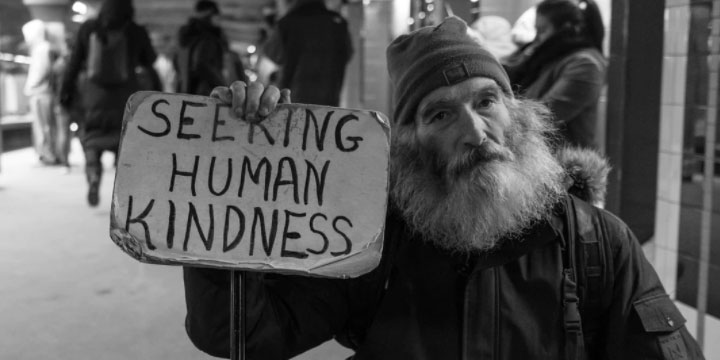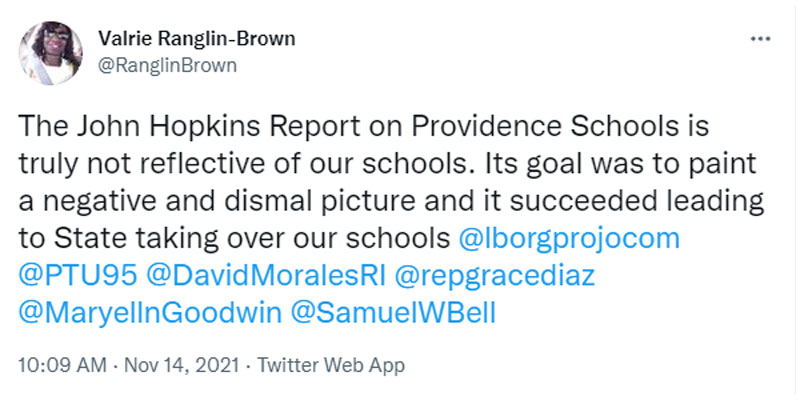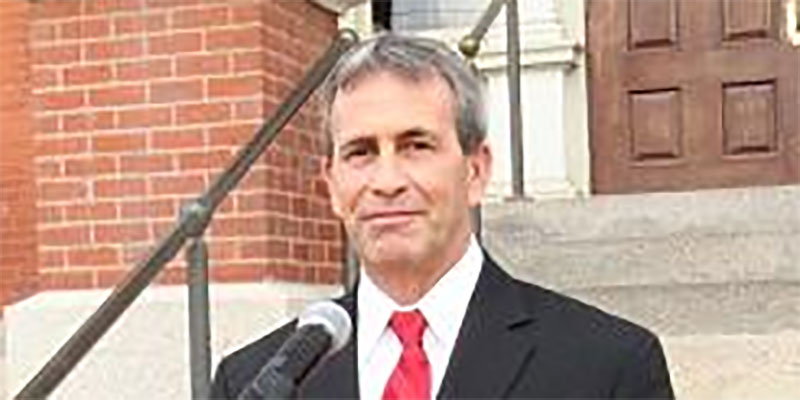Transgenderism in schools is one of those strange issues that is simply so odd many people will just not process it, to the point of denial, while others will insist on seeing it as completely normal advancement in human interactions, but that is going to determine answers to profound questions, whether we acknowledge the issue or not.
And so, parents in Wisconsin are suing their local schools for going against their judgement as parents, and even lying to them:
[Open full post]Several parents have filed a suit against a Wisconsin school district challenging a policy that allows teachers and school officials to refer to children by different names and gender pronouns without parental consent or knowledge.
Represented by the Alliance Defending Freedom and the Wisconsin Institute for Law and Liberty, the parents are arguing that a Kettle Moraine School District policy takes away their right to make decisions about what is best for their children.
With that question, I mean Woonsocket as representative of municipal governments generally.
The city is in the midst of the process of figuring out how to spend the $36 million dollars the federal government will send its way as part of the American Rescue Plan Act (ARPA). You’ll recall that the purpose of the act is to “deliver immediate economic relief.” When it comes to municipalities, the goal is ” to remedy this mismatch between rising costs and falling revenues.”
Of course, the money is moving at the speed of government and is therefore arriving well after it was actually needed. Thus, Woonsocket finds it makes sense to spend $250,000 for “an ice skating rink with synthetic ice” and $53,000 for “ergonomic chairs in the city council chambers.”
In short, Joe Biden and Congressional Democrats transformed a once-in-a-lifetime calamity for the people our country into a once-in-a-lifetime opportunity for government officials to buy themselves goodwill and future favors. Do what we may, the money is going to arrive, so the best that can be done is to spend it wisely in a way that pays it back to the people whose progeny will have to pay off the debt, but that doesn’t mean the whole transaction should have been started in the first place.
The debate in Woonsocket is helpful also in the degree to which it shows that the stakes are actually much higher:
Many of the people who spoke at Monday night’s council meeting want to see a portion of the city’s share of federal coronavirus relief funding go towards affordable housing and helping the city’s homeless, something not included in the proposal.
“What would you do if that was you, where would you turn? Because the city you’re living in is turning its back on you,” said another speaker during the public comment portion of the meeting.
Keep in mind that the ARPA included billions of dollars given directly to individuals and families, along with billions more in rental assistance. Again, the money to municipalities is specifically intended to shore them up during budgetary hardship (although the risk has arguably long since passed, by now). It shouldn’t be treated simply as a one-time windfall for general spending across political demands.
Helping people who have stumbled over some obstacle in our society or economy is desperately important, but a city government isn’t able to give them what they really need. Furthermore, using government’s “once-in-a-lifetime opportunity” to give it central responsibility for their housing changes the relationship between the people and public officials. The best way for Woonsocket to help those struggling to find housing is by addressing the causative obstacles, which include (among other things) infrastructure, taxation, and regulation.
Like the dye a patient drinks before undergoing a medical imaging procedure, ARPA funds are showing how incredibly inadequate our local civic systems are to make these decisions. All the players react mainly to that which is most obviously in front of them, and none have incentive to address non-flashy, fundamental imbalances or to resolve challenges in a way that reduce their own importance.
Featured image by Matt Collamer on Unsplash.
[Open full post]Even before it goes into effect, a new rent-control law in St. Paul, Minnesota, is backfiring:
“Less than 24 hours after St. Paul voters approved one of the country’s most stringent rent control policies, Nicolle Goodman’s phone started to ring,” the Star-Tribune reports. “Developers were calling to tell the city’s director of planning and economic development they were placing projects on hold, putting hundreds of new housing units at risk.”
“We, like everybody else, are re-evaluating what — if any — future business activity we’ll be doing in St. Paul,” major developer Jim Stolpestad told the newspaper.
When you want more of something (e.g., affordable housing), you have to make it easier and more profitable to create, not harder and less profitable. Unfortunately, it’s more difficult to address these challenges at their root (where the solutions will often conflict with progressive ideology) than to impose mandates on the effects.
The thing is — emphasizing that this became law by popular referendum — you can vote yourself stuff from other people, but ultimately, you can’t force them to work in order to pay for it.
[Open full post]This is an amazing incident, in which YouTube cut the streams of several of its most successful, home-grown channels because they were utilizing a public video stream and were overshadowing mainstream media sources:
The Rekieta Law channel, which features multiple lawyers doing real-time analysis of the trial, often beat the number of people watching the PBS stream. The PBS stream is one of the more reliable ones available to YouTube users and was being used by several outlets.
The ability for anybody to reach a wide audience is the core selling point for YouTube as a business. It’s literally the idea behind the company’s name!
So, is YouTube scared of the legacy powers or do its managers want to join the legacy, not overcome it?
[Open full post]Something is going on over there, and in addition to providing a red flag for Coventry, it illustrates a problem of catastrophic import that we all should investigate. The details, as Sam LaFrance reports them for WLNE, appear to be as follows:
- While in the hallway between classes on Monday, a male student at Coventry High School spoke the sentence, “He’s got a gun.”
- A staff member heard the student speak this sentence and informed the school principal.
- The principal locked the school down and called the police.
- Multiple agencies of law enforcement responded, with upwards of fifty officers, and searched the entire school (including students’ lockers and backpacks) twice with dogs.
- Students were finally permitted to leave (styled as “evacuation”) by 4:00 p.m.
- There was a police presence on the campus Tuesday.
- And the student who spoke the sentence was arrested, despite having no weapons or even access to firearms.
This is madness, but at least we can draw two lessons of much larger significance.
The first is the similarity to COVID-mandate madness. Although important details may be missing, it looks as if government employees dramatically overreacted across the board, causing great and unnecessary expense and distress. In that context, the arrest of the student for speaking a sentence that was overheard and (perhaps) misunderstood by a single staff member looks like an attempt to give the government employees an excuse. If he did something wrong, then they can’t be blamed for their overreaction.
Just so, the irrational demand that everybody must be vaccinated, down to the last kindergartener, carries the narrative of danger down to an obvious finishing point to cover the overreaction of public health authorities.
The second lesson that we can draw from the spoken gun incident at Coventry High relates to the attempts of critical theorists to make us unable to cope with civilization. Immediately on the surface is the message that even grown adults trained in the education and management of teenagers are incapable of addressing an overheard word without the presence of dozens of armed personnel. How dangerous a world and how inadequate the individual must be to the challenge of life! The message to students is, “We cannot handle the world, so obviously you’ll never be able to, either.”
More insidiously, this principle is reinforced by the additional message that the student at the center of the incident brought all this trouble down on his school and on himself unknowingly, with a casual slip of a phrase. A world in which that can happen is one in which it must be impossible to function without strict guidance from the collective.
Whether this is part of a neo-Marxist plot to destroy Western civilization or is merely the organic effect of shifts in our society, it’s existentially serious, and we ought to treat it as such. One way or another, this increasing tendency must be halted and reversed without delay.
Featured image by Maxim Hopman on Unsplash.
[Open full post]Putting aside the insinuation of bad faith on the part of people with whom she disagrees, Providence English teacher Valrie Ranglin-Brown — sister of Rhode Island Representative Marcia Ranglin-Vassell (D, Providence) — makes a point well worth considering:
The John Hopkins Report on Providence Schools is truly not reflective of our schools. Its goal was to paint a negative and dismal picture and it succeeded leading to State taking over our schools …
Who cares that our students are also working to put food on the family’s table and keep a roof over their heads. I care when my Ss works night loses a patient (s) in the nursing home. “GM Miss , I have more bad news another of my patient died.” Who can tell me we are failing?
In a recent episode of his podcast, Revisionist History, Malcolm Gladwell raises just this point when exploring the U.S. News and World Report ranking of historically Black college or university (HBCU) Dillard University. Dillard doesn’t rank very highly, even though its outcomes for the population it seeks to serve are arguably better than that population’s outcomes at the most elite institutions. The university fails only in that it hasn’t cultivated a reputation for eliteness, but it succeeds by tailoring education to its actual students, in a way very much in line with Ranglin-Brown’s priorities for handling her own students.
That said, the Johns Hopkins report and, similarly, standardized test scores are not U.S. News and World Report rankings. The report was an in-person analysis of a specific school system, and the scores are straightforward assessments of what we expect students to learn in school.
Maybe they’re both missing something important or emphasizing something not so important, but that’s a case that has to be made descriptively. Simply taking the word of people professionally vested in the status quo that there’s something nobody else understands would be a travesty of deliberate ignorance. If every attempt at an objective measure screams for dramatic reform, voices against reform have to come up with more than complaints and conspiracy theories.
Stepping back a bit, though, Ranglin-Brown’s testimony actually supports the call for major change. Her point is that Providence schools are not failing, but rather, that they are forced to grapple with unique challenges. Fair enough, and true. But that means the solution is to redirect public resources away from schools that can’t address the problem and toward services and programs that can.
This won’t be done in Rhode Island, however, because the most powerful special interests in the state will not accept any solution that is calls for “different” rather than “more.” We shouldn’t question the concern expressed by people who devote their lives to educating disadvantaged children, but we can’t ignore their own interests, which lie in protecting a system that cannot succeed.
[Open full post]Roger Kimball read through an “equity” guide published by the American Medical Association and the Association of American Medical Colleges so you don’t have to. Either way, however, the results are terrifying:
From first sentence to last, the aroma of scolding virtucratic entitlement is by turns noxiously cloying and comically rebarbative.
For the comedy, try on these opening words: “The field of equity, like all other scholarly domains . . .” You snorted, didn’t you? You know that “equity” — which is Newspeak for Marxoid attacks on private property and merit-based advancement — is not a “field,” much less a “scholarly field,” but a vapid epithet chosen because it conjures edifying moral associations. …
… This surreal emission from two of the nation’s top medical organizations presents an advancing terminal condition. The prognosis for the patient is grim. Fortunately, contagion can be contained by laughter bolstered by doses of ridicule.
I’m not so sure Kimball’s prescription will do the trick. The social contagion may be sufficiently advanced that the infected will only withdraw further from those who are causing them psychic pain.
On the other hand, widespread expression of disapproval to people who cannot withdraw from you so easily because they are your doctors and/or want your money may still be effective.
[Open full post]Stalwart taxpayer advocate Rob Cote of Warwick has issued an open letter to the mayor of that city, Frank Picozzi:
Dear Mayor,
To keep you informed on the continuing Warwick Fire Department theft scandal. On Tuesday morning 11/16/21 at 9 am, former council president Steve Merolla will take a plea deal with the RI Ethics Commission to pay a fine in lieu of prosecution for his role in the YKSM / WFD debacle. In addition, due to the complaint that I filed, the Harrington report surfaced which was hidden from the council and the public which clearly indicates by statute and precedent that the WFD engaged in criminal action and that the city was on solid legal ground to seek restitution. I made that document public almost 3 months ago and I have heard nothing from your office.
I am respectfully asking you now what your position is and if and when you plan to seek restitution. Theft of taxpayer dollars is not something that can be ignored no matter if the city has to incur legal fees. You need to send the message.
Kindly inform me of what your position is on the matter. The only statement that I have heard from you is that your solicitor is “looking at it”.
I await your response.
Rob Cote
The political environment and news media being what they are in Rhode Island, it’s very easy for politicians simply to dig in and let scandals blow over. The details are often complex, and the motivation of insiders to keep the overall game going is high.
So, good for Rob Cote for staying on this issue. Even keeping track of it all can become a major time-cost for residents who simply want their local governments to operate well and fairly.
[Open full post]It’s a commonplace to suggest that (in general), the Left leads with emotion while the Right leads with reason. And obviously, images are emotional tools. So Vijay Jayaraj provides a service by addressing three provocative images or stories used to advance climate alarmism that have proved highly misleading. In summary:
- Many islands have been gaining, not losing landmass.
- The polar bear population has been steady.
- Climate-vulnerable farmers in India are not experiencing problems from climate change.
Three isolated facts are not a disproof, of themselves, but as with so many hot, politicized topics, opinion-leaders are insisting that conclusions are obvious and decisions easy. They’re not, although it seems pretty obvious to me that the correct answer is in the opposite direction from what the alarmists proclaim.
[Open full post]Reporting by Vox writer Dylan Matthews makes me sad for the greater good we could be doing. In brief, a study found that simply increasing the treatment of drinking water around the world would produce huge gains in health and well-being. Such actions fall under the umbrella of water, sanitation, and hygiene (WASH) programs, which improve parts of life that most of us in the West simply take for granted.
The problem is, however, that it’s not as simple as treating water, just as addressing hunger and poverty is not as simple as giving food and money. We might imagine that it would be relatively inexpensive just to skim off some of the surplus wealth of the world in order to feed people, but feeding somebody in a backwater dictatorship is not as inexpensive as feeding somebody in your suburban Rhode Island community. There’s shipping, preservation, storage, and (don’t forget) corruption.
That is, the solution isn’t just the public service, it’s a way of thinking about the individual and organizing government, and incredibly, it’s fashionable in the West to cast the spread of civilization as colonization.
[Open full post]





